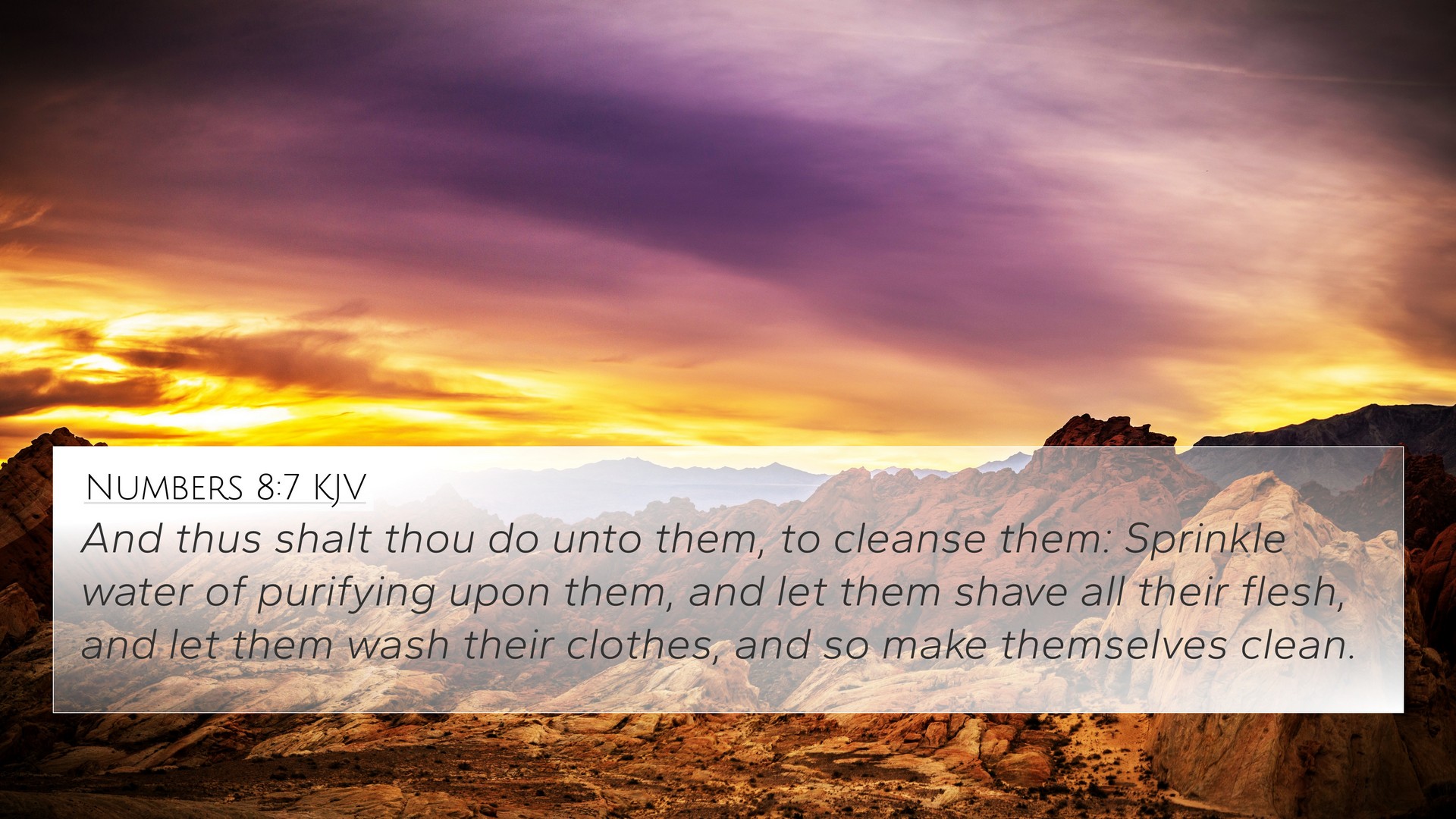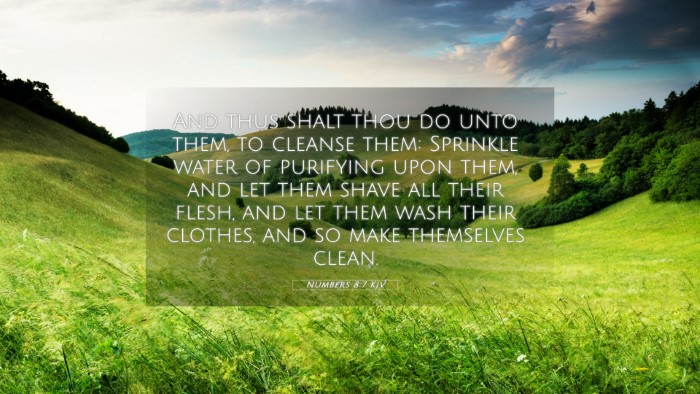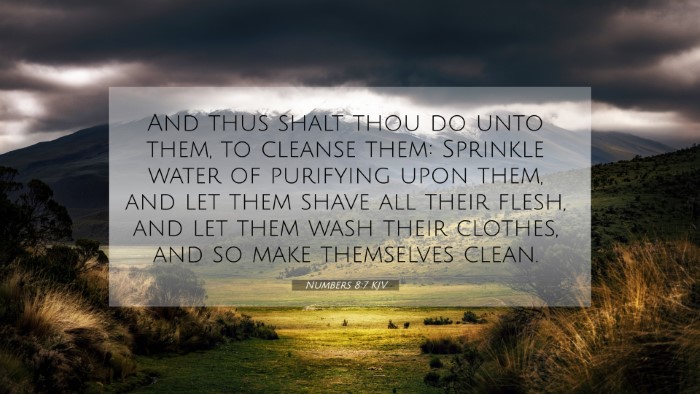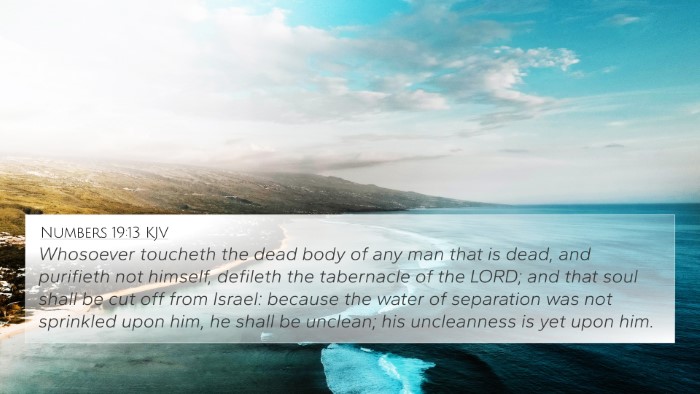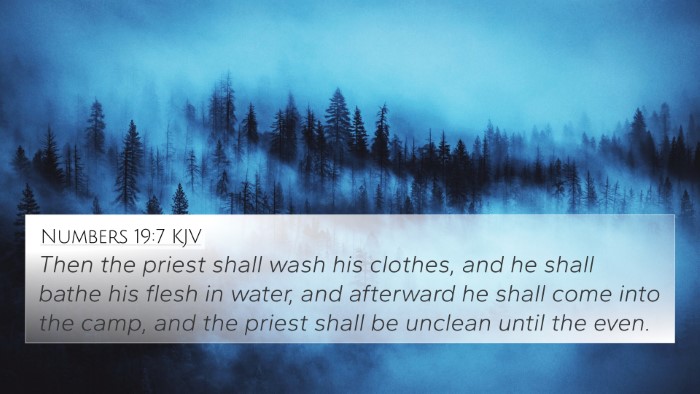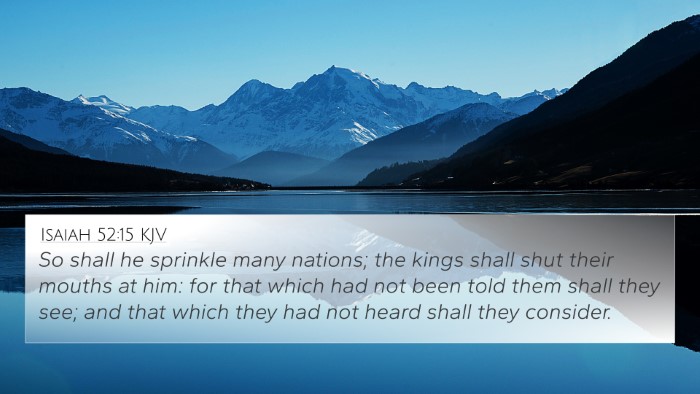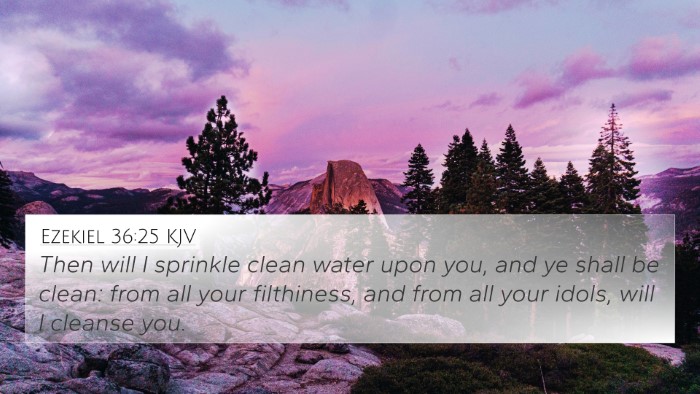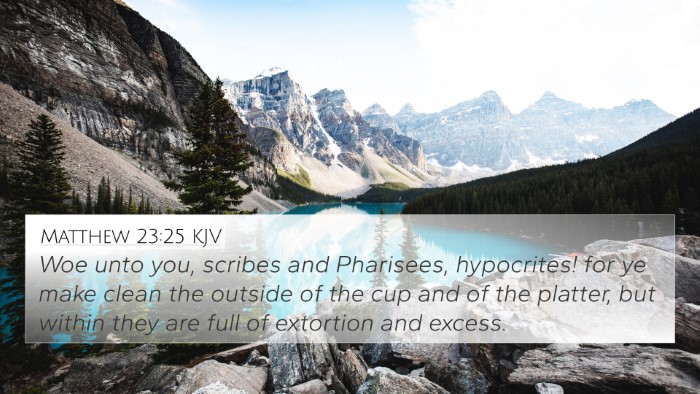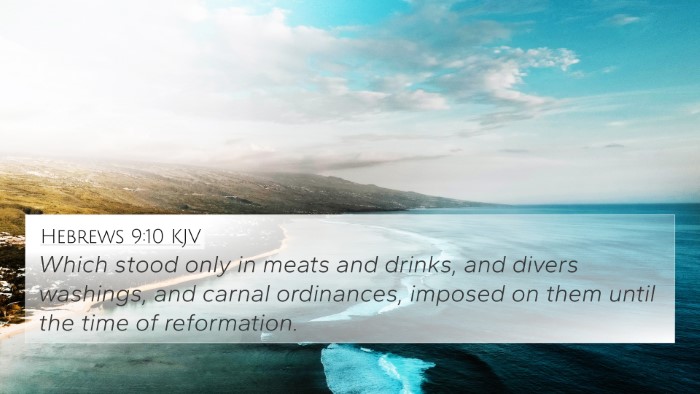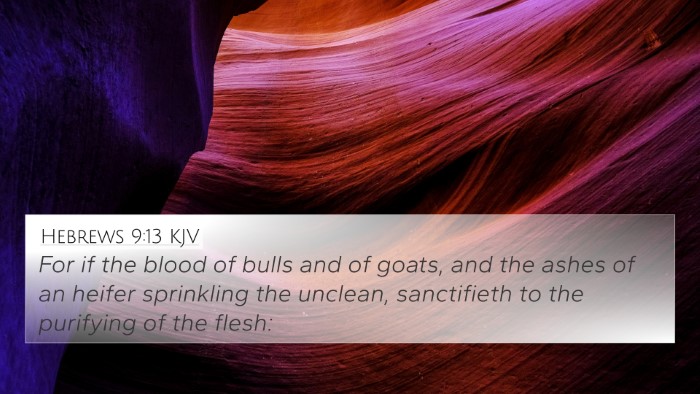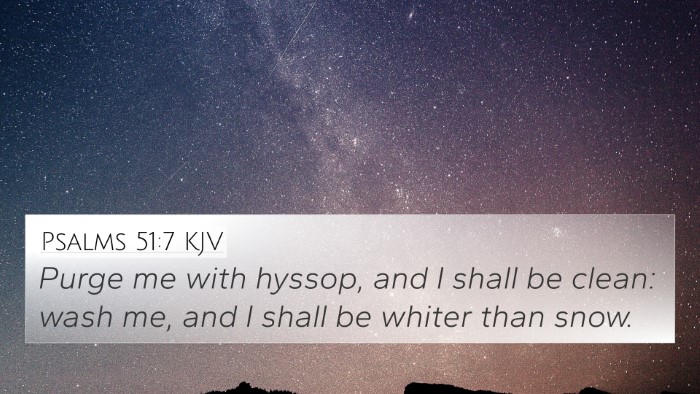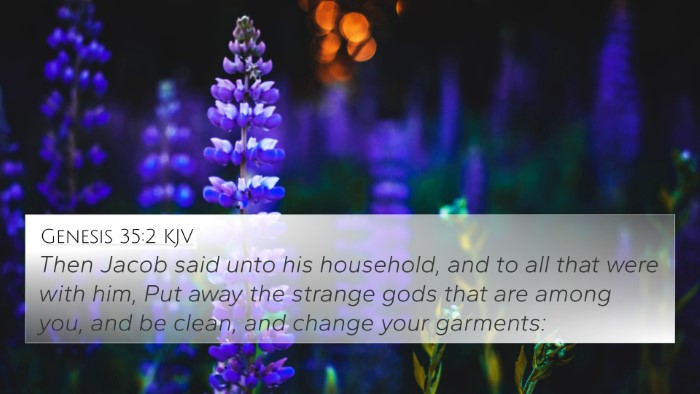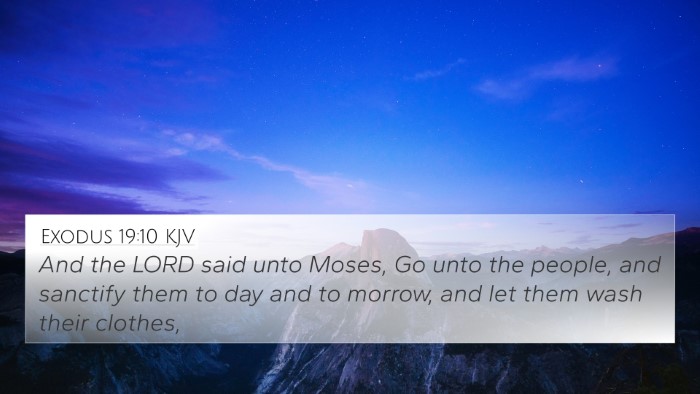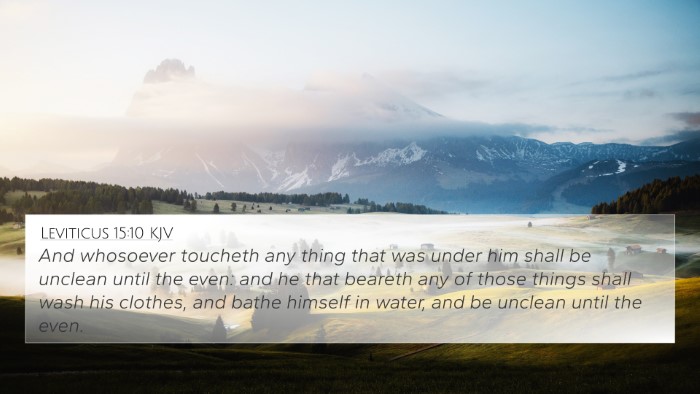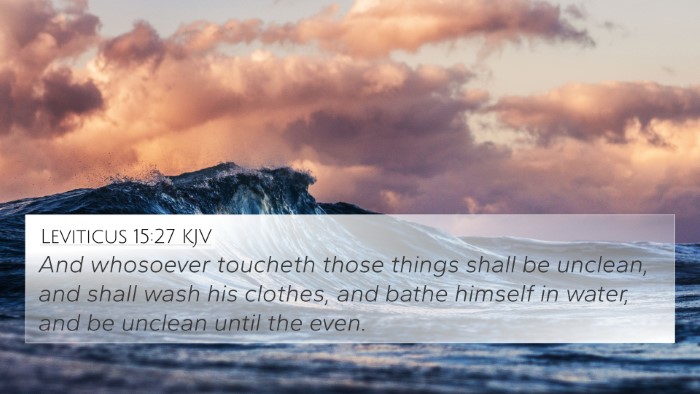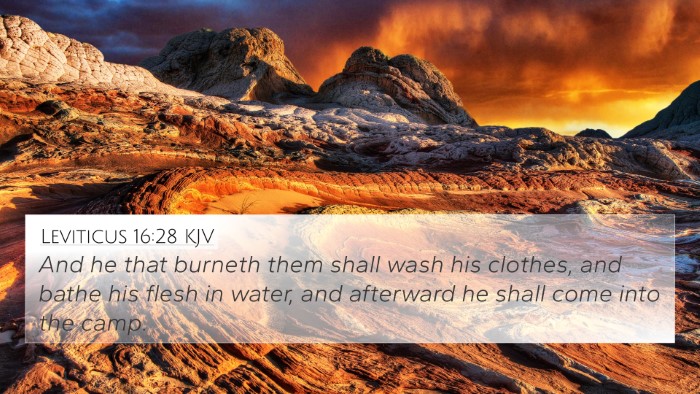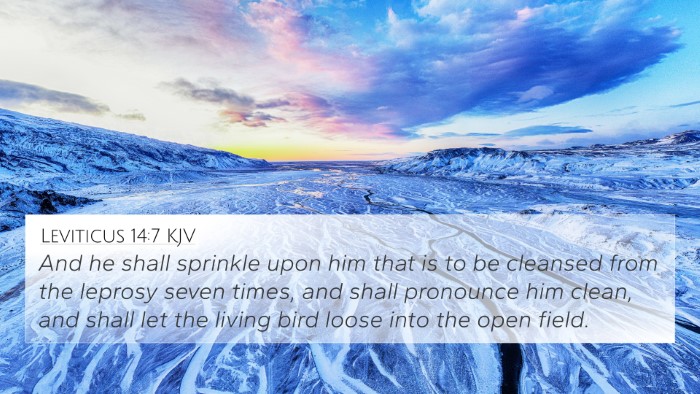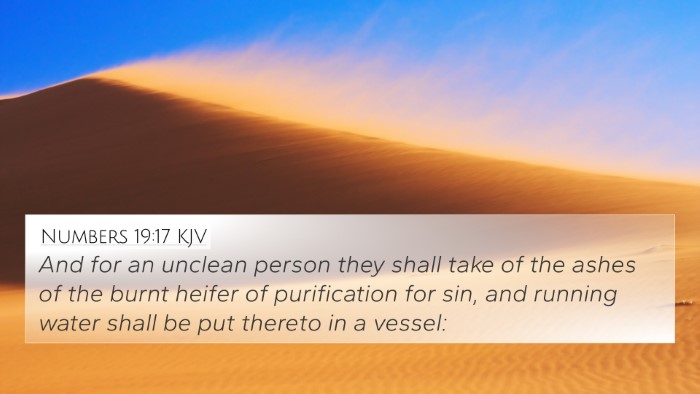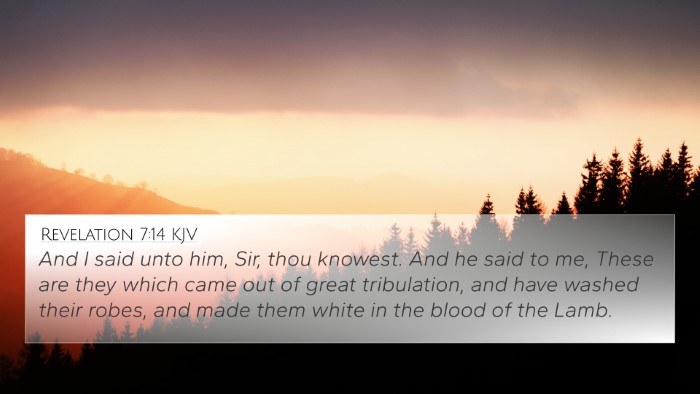Understanding Numbers 8:7
Verse Context: Numbers 8:7 states, "Thus shalt thou do unto them, to cleanse them: sprinkle water of purifying upon them, and let them shave all their flesh, and let them wash their clothes, and so make themselves clean."
This verse is part of the instructions given by God to Moses concerning the cleansing and preparation of the Levites for their sacred duties within the tabernacle. The process described symbolizes purification and readiness for service to God.
Insights from Public Domain Commentaries
Matthew Henry's Commentary
Matthew Henry emphasizes the ritualistic nature of this cleansing process, pointing out that it signifies the importance of holiness in those set apart for service. The sprinkling of water is a symbol of purification and is seen as essential for those who approach the sacred. The act of shaving represents a complete removal of impurities.
Albert Barnes' Commentary
Albert Barnes notes that this cleansing ritual was not merely physical but also had spiritual implications. He indicates that the washing and shaving represent a deeper inward purification. The need for the Levites to be clean reflects the overall principle that God desires His ministers to be holy and blameless as they undertake their duties before Him.
Adam Clarke's Commentary
Adam Clarke elaborates on the significance of each step in the cleansing process. He highlights that the sprinkling of water typifies the Holy Spirit's work in the heart of believers. Clarke also explains that the act of shaving indicates a fresh start and preparation for the work ahead, serving as a reminder that those who serve God must be set apart from worldly influences.
Biblical Cross References
- Hebrews 10:22 - "Let us draw near with a true heart in full assurance of faith, having our hearts sprinkled from an evil conscience..."
- Psalms 51:7 - "Purge me with hyssop, and I shall be clean: wash me, and I shall be whiter than snow."
- James 4:8 - "Draw nigh to God, and he will draw nigh to you. Cleanse your hands, ye sinners; and purify your hearts, ye double minded."
- 1 Peter 1:15-16 - "But as he which hath called you is holy, so be ye holy in all manner of conversation; Because it is written, Be ye holy; for I am holy."
- Exodus 29:4 - "And Aaron and his sons thou shalt bring unto the door of the tabernacle of the congregation, and thou shalt wash them with water."
- Ezekiel 36:25 - "Then will I sprinkle clean water upon you, and ye shall be clean: from all your filthiness, and from all your idols, will I cleanse you."
- Titus 3:5 - "Not by works of righteousness which we have done, but according to his mercy he saved us, by the washing of regeneration, and renewing of the Holy Ghost;"
- 2 Corinthians 7:1 - "Having therefore these promises, dearly beloved, let us cleanse ourselves from all filthiness of the flesh and spirit, perfecting holiness in the fear of God."
- Matthew 23:25-26 - "Woe unto you, scribes and Pharisees, hypocrites! For ye make clean the outside of the cup and of the platter, but within they are full of extortion and excess..."
- Isaiah 1:16-17 - "Wash you, make you clean; put away the evil of your doings from before mine eyes; cease to do evil; Learn to do well..."
Thematic Connections
The act of cleansing in Numbers 8:7 presents a significant theme of purification and preparation throughout the Bible. This theme resonates with New Testament teachings that emphasize the importance of spiritual cleanliness and heart purity, as seen in the cross-referenced verses.
Understanding Through Cross-References
The connections between Numbers 8:7 and the aforementioned verses illuminate the continuity of God’s call for holiness. For instance, Hebrews 10:22 aligns with the Levitical call to purity as it emphasizes drawing near to God with a clean heart. Likewise, Ezekiel 36:25 enhances the understanding of God's promise to cleanse His people, drawing a parallel to the Old Testament ritual.
Conclusion
In summary, Numbers 8:7 serves as a vital reminder of the necessity for holiness among those who serve God. By considering the insights from Matthew Henry, Albert Barnes, and Adam Clarke, along with the rich web of cross-references, we can appreciate the profound implications of this verse. Engaging in comparative Bible verse analysis allows us to deepen our understanding of the scriptural call to purity and the importance of spiritual readiness in our journey of faith.
In studying this verse and its connections, individuals can effectively utilize tools for Bible cross-referencing to enhance their understanding of scriptural themes, the importance of holiness, and the preparation necessary for service in God's Kingdom.
Further Study and Reflection
Those looking to explore the depth of this teaching should consider using a Bible concordance or a cross-reference Bible study guide. These tools will assist in identifying connections between the verses highlighted and understanding the overarching themes within Scripture.
